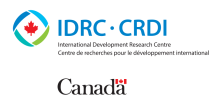Resource information
This book examines the gender dimensions of natural resource exploitation and management, with a focus on Asia. It explores the uneasy negotiations between theory, policy, and practice that are often evident within the realm of gender, environment, and natural resource management. It offers a critical feminist perspective on gender relations and natural resource management in the context of contemporary policy concerns: decentralized governance, the elimination of poverty, and the mainstreaming of gender.The book is centred around three themes:
the changing global context with which approaches to gender and environment must engage, particularly changes associated with neo-liberalism
the ways 'gender' has been incorporated in environment and development practices, especially within interventions designed to accomplish sustainable development goals
the realm of gender, knowledge and authority, and how gendered subjectivities problematise simplistic mappings of gendered agency and environmental actions.
The book combines conceptual argument with empirical material from a variety of political, economic and ecological contexts across Asia, including Cambodia, China, Indonesia, Malaysia, Nepal, Thailand, and Vietnam. In different ways, the authors explore how gender subjectivities, ideologies and identities are produced, employed and contested within natural resource governance, and how gender discourses shape exclusions and possibilities within environment/development processes. The book is intended as a core resource for students of gender studies and natural resource management, and as supplementary reading for a wide range of disciplines including geography, environmental studies, sociology, and development. It also provides a stimulating collection of ideas for professionals looking to incorporate gender issues within their practice in sustainable development.



